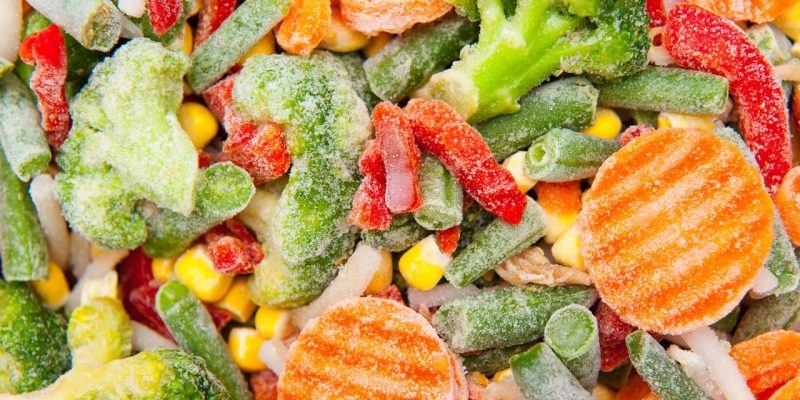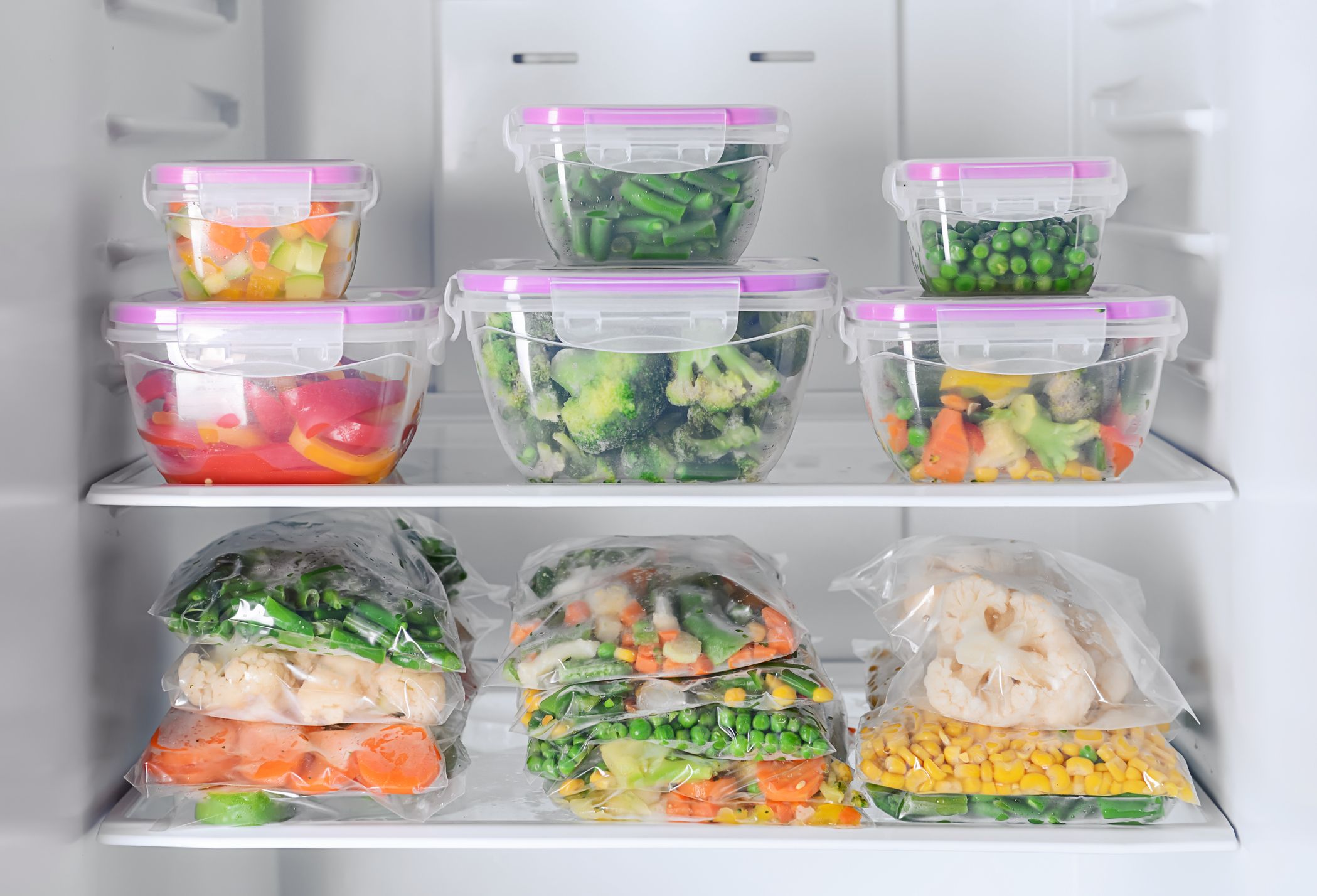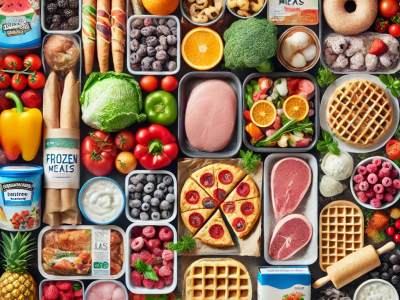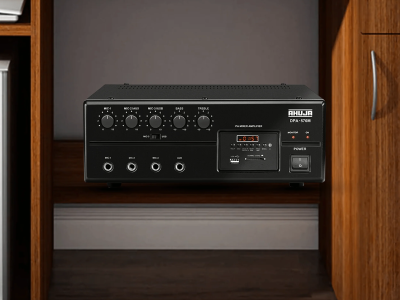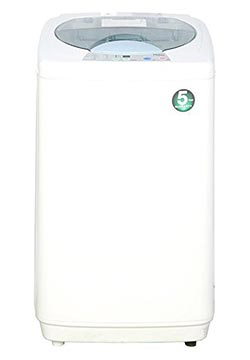Freezing food is an excellent way to preserve it for longer, but if you’re not careful, you might end up with freezer burn, which can make your food taste bad and lose its texture. In this guide, we’ll explain what freezer burn is, how to prevent it, and give you practical tips on how to store your food properly to keep it fresh and delicious.
What is Freezer Burn?
:max_bytes(150000):strip_icc()/GettyImages-1221636824-7775c574594f46249e097f6b7f956840.jpg)
Freezer burn occurs when food is exposed to air in the freezer, leading to dehydration and oxidation. It usually shows up as dry spots or discoloration on your food, and while it’s not harmful, it can affect the taste and texture. Foods with Freezer frost may become dry, tough, or lose their flavor, making them unappetizing.
How Does Freezer Burn Happen?
:max_bytes(150000):strip_icc()/Simply-Recipes-Freezer-Burn-Meat-LEAD-7a165bbf3632461f9083cdb7cb2369d5.jpg)
This is caused by the moisture in food evaporating and then forming ice crystals on the surface of the food. The ice can form inside the packaging or on the food itself, leading to patches of dried-out food. Here’s how it happens:
- Air Exposure: If food is not wrapped tightly, air can get to it, causing moisture loss.
- Temperature Fluctuations: When the temperature in your Freezing compartment changes (for example, when you open it often), it can cause ice crystals to melt and refreeze, which promotes burn.
- Long Freezing compartment Storage: The longer food stays in the freezer, the higher the chance of freezer burn. Even if the food is frozen, the moisture can still evaporate over time.
How to Prevent Freezer Burn
:max_bytes(150000):strip_icc()/opening-freezer-getty-0922-2000-4d88e56f89c44855a2278519975cebb9.jpg)
Now that you understand what Freezer frost is and how it happens, let’s talk about how you can prevent it. By following these simple steps, you can keep your food fresh and free from the burn for longer.
1. Use Proper Storage Containers
To prevent the burn, always store food in containers that are specifically designed for the freezer. These containers should be airtight to prevent air from getting in and causing moisture loss.
- Best options: Use freezer-safe plastic bags, heavy-duty aluminum foil, or vacuum-sealed bags.
- Tip: If you’re using plastic wrap or foil, make sure it’s tightly sealed around the food, with no air pockets.
2. Use a Vacuum Sealer
One of the best ways to prevent freezer frost is by removing as much air as possible before sealing the food. A vacuum sealer is an excellent tool that removes air from bags, which helps maintain food’s quality and keeps moisture from evaporating.
- Why it works: Vacuum sealing creates a tight seal around the food and removes all the air, which drastically reduces the chances of freezer burn.
- Pro Tip: For best results, consider using a vacuum sealer for meat, fish, or anything that will be stored for a long time.
3. Don’t Overstuff Your Freezer
A packed freezer may seem like a good idea, but it can actually lead to problems. When your Freezing compartment is too full, air circulation is restricted, which can cause uneven freezing and lead to freezer burn.
- Ideal Freezing compartment organization: Leave enough space for air to circulate and allow for quick freezing. Stack food in a way that allows air to flow freely around it.
4. Freeze Food in Small Portions
If you’re freezing large batches of food, divide them into smaller portions. Smaller portions freeze faster, and this helps prevent the formation of ice crystals, which can contribute to freezers burn.
- Tip: For soups or sauces, freeze in ice cube trays and then transfer to freezer bags. This method makes it easy to thaw just the amount you need.
5. Keep Your Freezer Temperature Stable
Fluctuating temperatures can cause the food to partially thaw and refreeze, leading to Cold burn. Keeping your freeze at a consistent temperature is key.
- Optimal temperature: Your freezer should be at or below 0°F (-18°C) to ensure food stays frozen properly.
- Tip: If your freeze has a lot of ice build-up, it might be time for a defrost to keep things running smoothly.
6. Don’t Store Food for Too Long
While freezing food extends its shelf life, there is still a limit to how long it should be stored. Foods can remain in the freeze for months, but they will start to lose quality over time.
- General freeze storage times:
- Meat: 6–12 months
- Vegetables: 8–12 months
- Bread: 3–6 months
- Tip: Label your food with the date it was frozen so you can keep track of how long it has been in the freezer.
What Happens If You Eat Food with Freezer Burn?
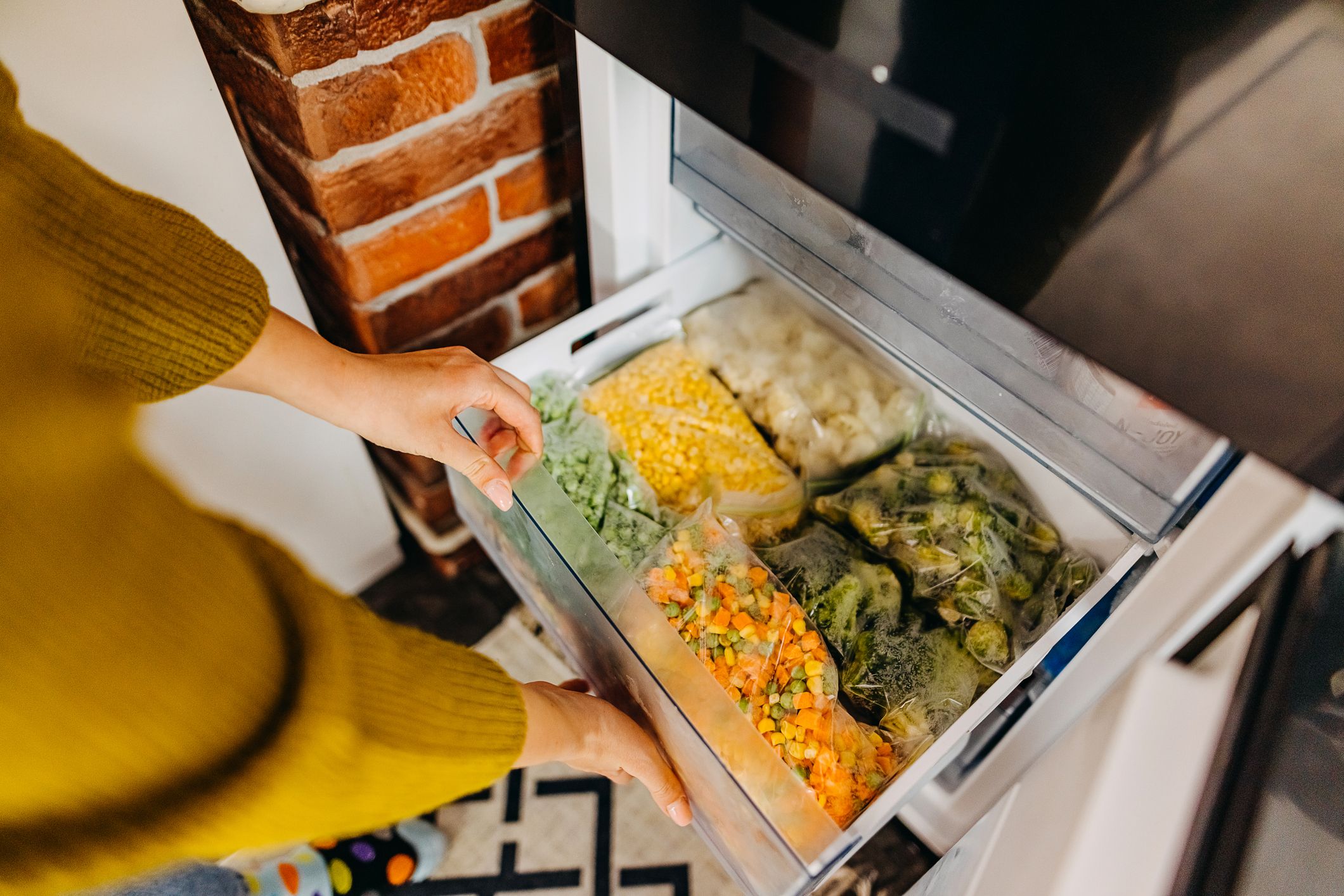
If your food has Freeze damage, it’s still safe to eat, but it might not taste very good. The texture and flavor will be compromised, and the food may taste dry or bland. For meats and fish, Freeze damage can cause a tough texture, making it harder to enjoy.
- Tip: You can cut away freezer-burned portions if the rest of the food looks fine.
How to Fix Freezer Burned Food
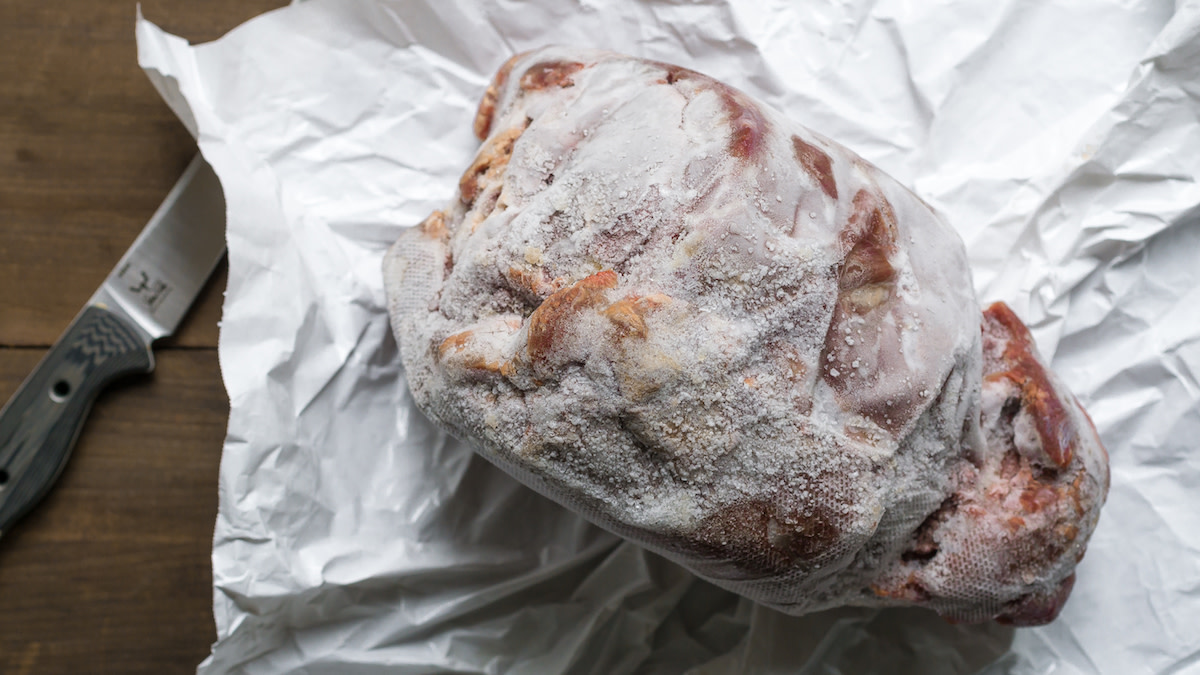
If you’ve already noticed freezer burn on your food, there are ways to salvage it:
- For meats: If the freeze damage is minimal, marinate the meat to help restore some moisture and flavor.
- For vegetables: Cook them into soups, stews, or casseroles, where the texture will matter less.
- For fruits: You can blend freezer-burned fruit into smoothies or make a fruit sauce.
Best Foods to Freeze and How to Store Them
Not all foods freezes well, so it’s important to know which items are best for freezing and how to store them to maintain their quality.
Best Foods to Freeze:
- Meat & Fish: Store in vacuum-sealed bags or heavy-duty Freezing compartment bags.
- Vegetables: Blanch first before freezing to preserve color and flavor.
- Baked Goods: Freeze items like bread, muffins, and cookies in airtight containers.
- Fruits: Freeze berries, peaches, and other fruits in single layers on baking sheets before storing them in bags.
Foods That Don’t Freeze Well:
- Lettuce: Becomes mushy when thawed.
- Eggs in Shell: The shells may crack, and the texture may change.
- Cream-based sauces: They tend to separate after freezing.
Conclusion:
Freezer burn is a common issue, but it’s preventable with the right techniques. By using proper storage methods, sealing your food tightly, and keeping your refrigerator at a stable temperature, you can enjoy fresh-tasting frozen food for months. With a little care, your frozen meals can remain flavorful and high-quality.

